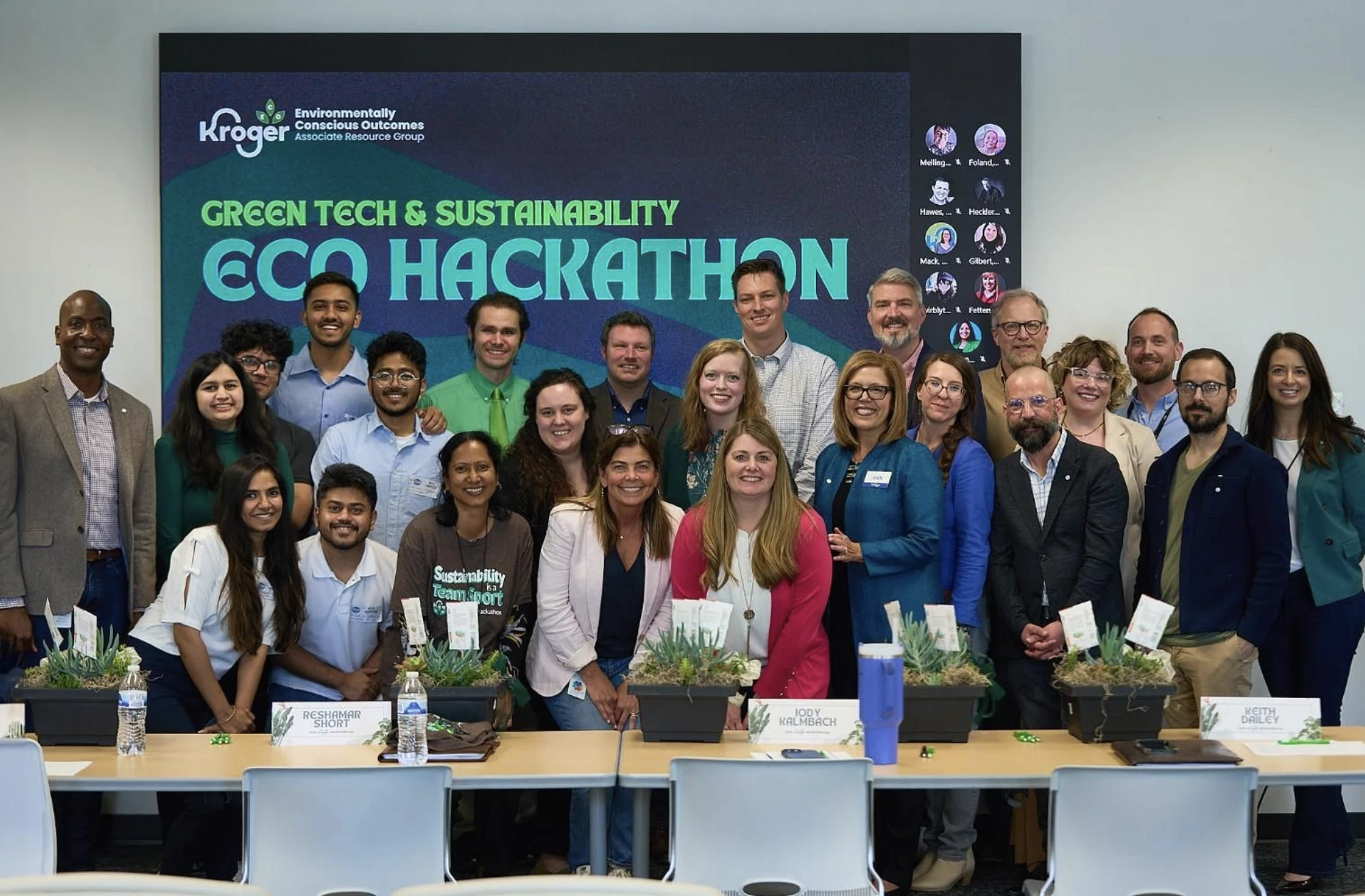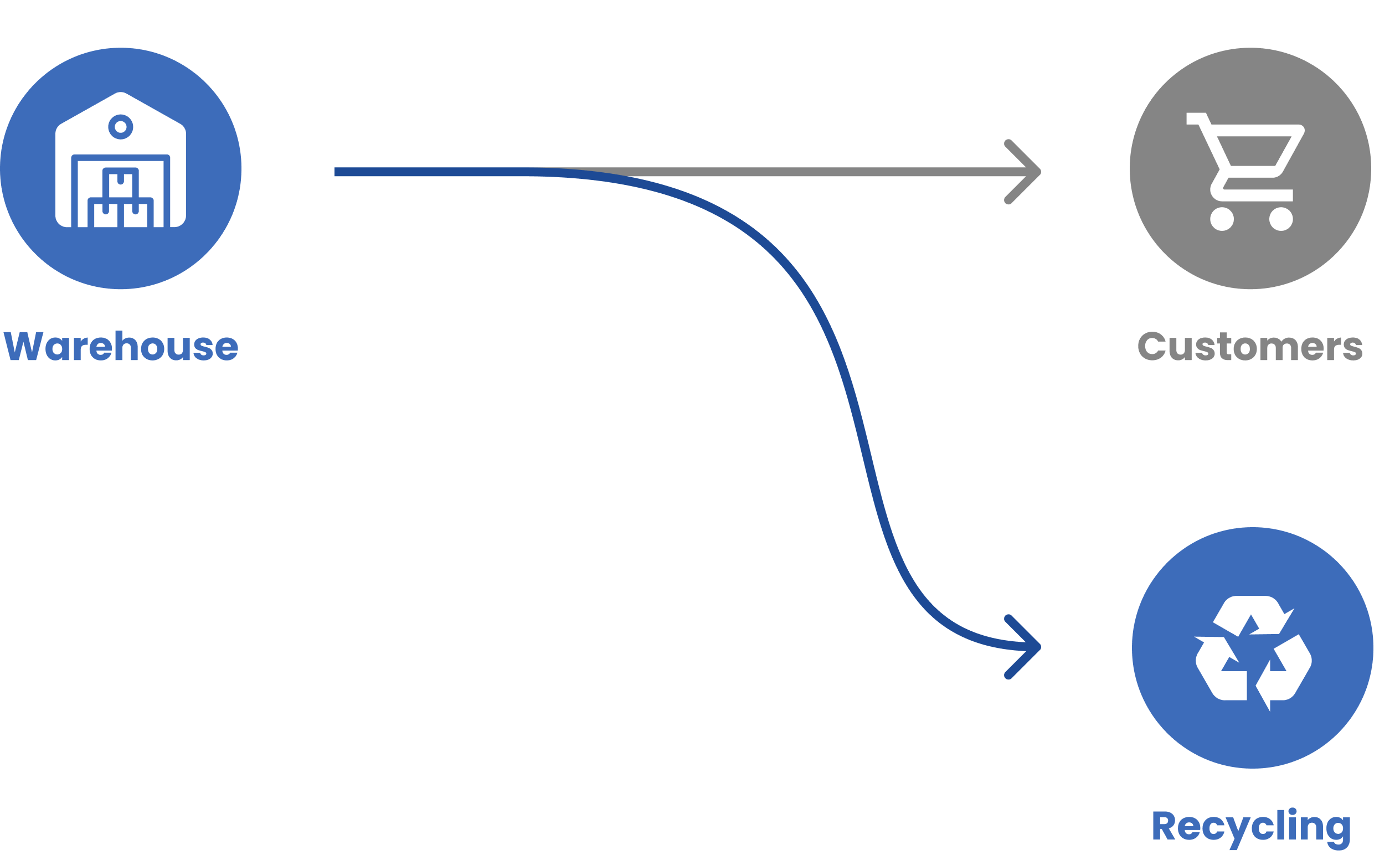←
Back

Quality Assurance - QA #1 marks it unfit.
A product sits in a warehouse,
nearing expiry & unfit for stores.
Tedious manual tracking. Significant delays.
Wasted resources.
Now, scale this process to
thousands of products.
Days pass. QA #2 moves it to disposal.
Next day. QA #3 decides
— dump or donate.
So, what can be done?
Kroger ReSKU
A Progressive Web App that streamlines coordination between warehouse staff and food bank reps for efficient digital donation management.
2x Employee Efficiency
Streamlined evaluation,
quick disposal or donation without multiple QA checks.
30% Reduction in asset shrink
Ensured timely warehouse assessments, preventing product expiry.

Boosting Kroger partnership
Enhancing PR, fostering community goodwill, and reinforcing brand loyalty.

Hover to increase focus…
Hackathon Challenge
Kroger needs a data-driven system with intuitive interfaces to repurpose unsellable products and drive decisions supporting the Zero Hunger | Zero Waste 2030 strategy.
What are unsellable products?
Warehouse inventory that can't be sent to stores but is still usable & consumable.

What currently happens to unsellable inventory?
Unfit for retail as per the damage protocols and are either recycled or dumped.

Market Taxanomy
We analyze food rescue services, examining key factors like audience, marketing, and pricing.




This helped us identify best practices and opportunities to enhance unsellable product recovery.

Multiple Contact Channels

Marketplace

Product
Pickup

Marketing Campaigns

Second Chance Store. Initial Idea.
A dedicated space in Kroger warehouses for unsellable items, organized by damage level, with an on-site pickup and payment system.
Items are also listed on an online portal, enabling employees to browse and buy what they need.
Expert Feedback. A Turn-around.
We gathered expert feedback from key stakeholders to refine roles, operations, and implementation. But, our concept was set
aside due to the following reasons:
Kroger faced logistical challenges with a similar past attempt.
Selling to employees conflicted with Kroger’s mission.
The idea lacked community collaboration.

Though our concept didn’t align with Kroger’s goals, expert feedback helped shape our next steps.
What if we redirected the outflow through
a donation mechanism?
A Tale of Two Warehouses
We went to actual warehouses to see how the existing donation workflows function and we found critical issues that needed a revamp!



Miscommunication
Manual processes make data unreliable.

Ineffective Reporting
Informal channels cause miscommunication.

Variable Systems
Each warehouse handles unsellable goods differently.

Revamped Opportunity

Drag…
Key Features. How does ReSKU help?
Contributing to Kroger's Vision
We pitched our idea at the Eco-Kroger Hackathon, competing against internal Kroger teams. And our forward-thinking approach earned an honorable mention for aligning with Kroger’s ZHZW mission.

And that's me!

Pitching our idea to Kroger’s board was a unique experience, offering firsthand insight into how businesses integrate design with key operational teams.
It reinforced the importance of aligning design with business strategy and cross-functional collaboration. At the end, we received an applauded culmination.

Idea evaluation
Your first few design ideas might
be a mess. Which is completely alright. Figuring out why they
don’t work provides clarity to
make better, more thoughtful design choices moving forward
in the process.

Right research
Recruiting the right participants
for UX research is crucial as exploring the right questions. Meaningful insights come from engaging the right stakeholders, emphasizing quality over sheer
data quantity.

Business POV
Regularly realigning with the strategic vision is crucial for
making informed design
decisions. Better understanding
of the vision transforms
constraints into opportunities
rather than limitations.
Thank You!



















